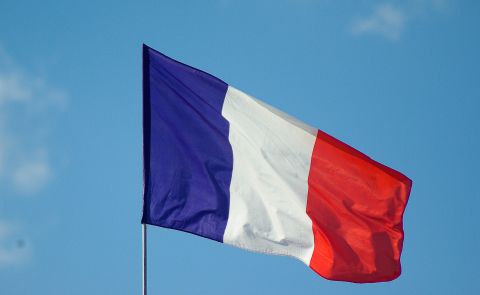
Azerbaijani Foreign Policy Towards Russia: Not-so-close but also not-so-distant

The implications of the Second Karabakh War for the region and Azerbaijan-Russia relations have so far been complex in terms of Russia’s increased influence and post-war settlement processes. This process resulting in “The Declaration on allied interaction between the Republic of Azerbaijan and the Russian Federation” brings about questions like whether there is a continuity or change in bilateral relations after the war, or whether that declaration meant an end to the multivector and balanced foreign policy of Azerbaijan.
One might see both change and continuity but what is free from doubt is that the Russian peacekeepers in Karabakh became the linchpin for Azerbaijan’s foreign and security policy towards Russia. And even though Russia’s hard power leverage over the South Caucasus has had negative repercussions for Azerbaijan’s traditional policy, the instances the parties went toe-to-toe intensified over time thereby leading to not-so-close but also not-so-distant foreign policy towards the Northern neighbour.
After the 44 days of war between Armenia and Azerbaijan, parties signed a Russia-brokered ceasefire agreement stipulating deployment of Russian peacekeeping forces in the Nagorno-Karabakh region. Furthermore, in February 2022, Russia launched a war against Ukraine, which has had close relations with Azerbaijan supporting each other’s territorial integrity to this day. The presence of Russian troops coupled with following tensions in Nagorno-Karabakh, and the war in Ukraine have become real tests for Azerbaijani-Russian relationships and for the claims regarding qualitative change in Azerbaijan’s foreign policy.
Russian Peacekeepers in Nagorno-Karabakh: Coming together or drifting apart?
From Russia’s perspective installing troops in Nagorno-Karabakh was thought provide some control over Armenia-Azerbaijani relations, the peace processes and, Azerbaijani foreign policy which had inclined to opt for a balanced approach towards the West and Russia. Such an approach has deep-rooted sources in Russian perceptions towards Azerbaijan as the former believed that if the Nagorno-Karabakh conflict ended Azerbaijan would break the chains of Russia and embark on more pro-Western policies. Hence, Russia saw the conflict as a main leverage over Azerbaijan till the time the peacekeeping forces commenced its mission adding another layer to this leverage.
While that is the case for Russia, since the ceasefire Azerbaijan has been trying to neutralise the hard power of the former in Nagorno-Karabakh by testing and questioning the effectiveness of peacekeeping forces. And this has led to rocky relations between parties in this context.
A specific clause in the trilateral declaration ending the war in 2020 stipulated that Russian peacekeepers will conduct its mission for five years and if not terminated by any of the parties, it will further be extended for five more years. Coupled with this, vague wording and content of declaration has led parties to interpret it according to their interests thereby leading to the battle of statements and actions on the ground.
One of the issues that Azerbaijan has repeatedly complained about was around the withdrawal of Armenian armed forces from Nagorno-Karabakh and the prevention of entry of these forces to the region, which was in accordance with the declaration but did not materialise under the Russian peacekeeping forces. Furthermore, Russian troops conducted specific military drills in Nagorno-Karabakh aimed against potential unmanned aircraft activities and attacks, and for ensuring the security of the Lachin corridor, which took place next to the drills from Azerbaijani-Turkish joint forces. In August of 2021, Russia for the first time explicitly accused Azerbaijan of violating the ceasefire agreement following the deadly clashes between Azerbaijani and Armenian armed forces in Nagorno-Karabakh.
Azerbaijan trying to scrutinise the effectiveness and future legitimacy of Russian peacekeepers went hand in hand with Russia’s probing and signalling actions. One of those examples included the rumours of Russia distributing or planning to distribute Russian passports and citizenship to ethnic Armenians, which is a well-known tactic used in Transnistria, Abkhazia, and South Ossetia. What is more, in March of 2021 separatist government in Nagorno-Karabakh adopted Russian as an official language which can be considered another “soft power” tool to win hearts and minds of the local population in the region generating red lights in Baku.
In parallel, Azerbaijan has also made use of external balancing against Russian influence, especially through deeper partnership steps with Turkey. The Shusha Declaration signed by Azerbaijan and Turkey encompasses deep level cooperation on a wide range of issues including defence and new transportation routes, affirming the joint efforts by the two armies in the face of foreign threats, and the modernisation of armed forces. This agreement raised the relations between these countries to a level of alliance, creating red lights this time for Moscow. Following the declaration, ideas were voiced about possible establishment of a Turkish military base in Azerbaijan, which caused reactions from Russia. The spokesperson of Russia’s President Dmitry Peskov stated that “[the] deployment of military infrastructure by the [NATO] alliance countries near our borders is cause for our special attention as well as a reason for us to take steps to ensure our security and interests.”
Enter the war in Ukraine
On 24 February 2022, Russia launched another invasion in Ukraine. This decision laid the foundation of another paradox in Azerbaijani foreign policy, which just a few days prior signed a declaration on allied interaction agreement with Russia. This paradox heightened during the war, showing itself both in Nagorno-Karabakh and regarding a stance towards Ukraine, which, as mentioned, set off another test for Azerbaijani-Russian relations.
The aforementioned declaration on allied partnership on deeper military and diplomatic cooperation can be thought of as a response to and balancing act against the Shusha Declaration and Turkish influence in South Caucasus. The Declaration [on allied interaction agreement with Russia] generated a lot of questions and concerns about a change in Azerbaijan's foreign policy course. The declaration was considered a switch in the policy from balanced and multivector one to the one with limited manoeuvrability space. This was especially quite controversial in light of Russia’s invasion of Ukraine. Concerning this, Azerbaijani President Ilham Aliyev stated that this declaration represented what had been the case for Azerbaijan-Russia relations before and it just made it official.
On the other hand, through this agreement Azerbaijan intends to escape the pressures from Russia on joining the Collective Security Treaty Organisation and Eurasian Economic Union, which are the main intergovernmental mechanisms through which Russia strives to control post-Soviet countries. Through this declaration Russia, for the first time, at the top level confirmed Azerbaijan’s territorial integrity which had not been the case before, according to Azerbaijani expert on international law Kamal Makili-Aliyev.
Nevertheless, the fact that Azerbaijan and Ukraine supported each other’s territorial integrity and had close relations presented tough questions for Baku who just signed an agreement with Russia reassuring each other about holding similar stances in foreign policy matters. Following the recognition of the independence of the separatist governments in Ukraine’s regions of Donetsk and Luhansk, Azerbaijan remained silent, which was possibly one of the prices of the declaration it signed with Russia. However, given that Russia did not attain the goals it expected prior to the war and embroiled in atrocious warfare with colossal military losses, Azerbaijan saw opportunities in pushing its interests around various interrelated agendas which in the process is accompanied by negative Russian reactions.
Firstly, although no explicit support was voiced for Ukraine, humanitarian aid was provided in the form of medical supplies and equipment worth more than 5 million euros. The state-owned oil company SOCAR was instructed by the Azerbaijani government to provide the ambulances and vehicles of the State Emergency Service with fuel free of charge in its gasoline stations in Ukraine. With that in mind, Azerbaijan did not attend the vote in the Council of Europe about terminating Russia’s membership. What is more, the spokesperson of the Azerbaijani Ministry of Foreign Affairs Leyla Abdullayeva stated that the issue between Ukraine and Russia needs to be settled via diplomacy and international law respecting the territorial integrity principle. When asked about sanctions against Russia, Aliyev said that sanctions wouldn't be effective as Russia has capacity to cope with them. During the first phase of the war in Ukraine Azerbaijan tried to balance actions and statements regarding supporting Ukraine and remaining silent about sanctions and anti-Russian policies from the West.
Secondly, as the war in Ukraine entangled Russia in an unexpected and damaging situation, Azerbaijan attempted to test the will and capacity of Russian peacekeeping forces in Nagorno-Karabakh. After trying to leave Armenia out of the equation in Nagorno-Karabakh, Azerbaijan frames the problem around the counterinsurgency narrative and talks only to Russia, constantly underscoring the temporary nature of the peacekeeping mission. Through this, it intends to force Russia to clear Armenian armed forces out in the region basing its arguments on the trilateral ceasefire agreement and Russia's demarcated responsibilities. Around this context, Azerbaijani forces entered the village of Farrukh (Parukh in Armenian), northwest of the town of Agdam, a move which Azerbaijan described as “establishing positions and deployment locations." Following this, the Russian Ministry of Defence stated that Azerbaijan violated the ceasefire agreement by entering an area under Russian peacekeeping mission’s control and called for the withdrawal of Azerbaijani troops. Although later Russia claimed that the area was under Russian control, Azerbaijan denied it by sharing a video from Farrukh village. In addition, Azerbaijan applies pressure over the Armenian population in Nagorno-Karabakh through allegedly cutting gas supplies. Azerbaijan seems to make use of coercive diplomacy and intimidation tactics to get what it wants in Nagorno-Karabakh while Russia is having difficulties in diversifying its resources and energy in more than one front.
Finally, this uneasy relationship continued around the Azerbaijan-Armenia negotiations too. Following the normalisation talks between Turkey and Armenia and the war in Ukraine, Azerbaijan and Armenia took the initiative for dialogue via bilateral negotiations and European Union mediation. The OSCE being ineffective after the war and especially with the United States and France not willing to sit with Russia because of the invasion of Ukraine, Azerbaijan and Armenia intend to further the process themselves. Armenian PM Nikol Pashinyan seems willing to make an opening and normalisation both with Turkey and Azerbaijan.
In this context, Azerbaijan has sent a five-point proposal involving territorial integrity and demarcation issues to Armenia as a new framework for peace talks, to which Pashinyan responded at least not negatively. In response, Armenia offered a six-point proposal to Azerbaijan during leaders’ attendance at a trilateral summit in Brussels chaired by European Council President Charles Michel on April 6. Armenia’s proposal framed the issue around the protection of Armenian population’s rights in Nagorno-Karabakh indicating respect for territorial integrity of both countries. For parties, these principles are supposed to lay foundations of final peace treaty.
Apparently, Russia does not seem delighted by these processes which it considers a loss of main leverage it holds over both Caucasian countries. Russia recently accused Azerbaijan of conducting scientific research on biological weapons with the financial support of the US, to which Azerbaijan rebuffed the claims. Through such tactics and allegations Russia signals its presence and intends to retain pressure on Azerbaijan, thereby preparing a ground for more aggressive interference if the other side does not behave accordingly.
As exemplified by the Russian peacekeeping mission in Nagorno-Karabakh and the events following Russia’s invasion of Ukraine, Azerbaijan makes use of an ambiguous and sometimes passive aggressive approach towards Russia by aiming to ensure its interests are fulfilled in Nagorno-Karabakh. Azerbaijan attempts to balance statements and actions on the ground so as to shield itself from potential harsh reactions even though many times both parties were on the edge of direct confrontation. Consequently, Azerbaijan still keeps its not-so-close and not-so-distant approach towards Russia while the magnitude of reactions and confrontations seems to be on the rise. As long as Russia will be bogged down in Ukraine, Azerbaijan’s manoeuvrability and opportunities to fulfil its interests in Nagorno-Karabakh and vis-a-vis Armenia are probable.
About author: Zakir Rzazade is a master student of Conflict and Democracy Studies at Masaryk University focusing on international security and war studies
See Also

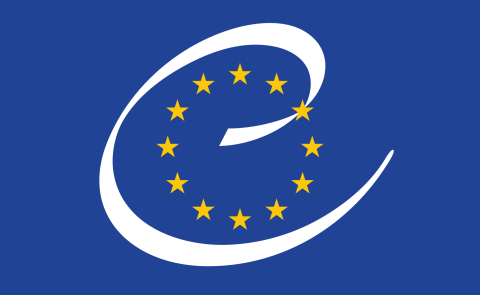
Armenia Strengthens Ties with Council of Europe
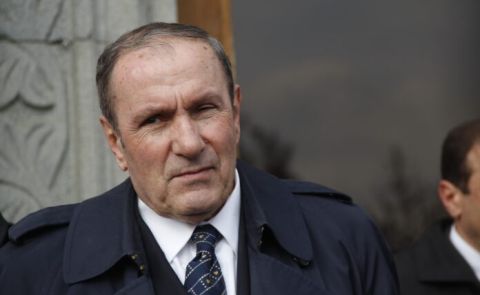
Former Armenian President Labels Pashinyan a Traitor and Blasphemer
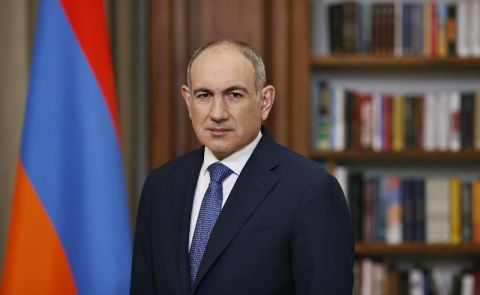
Pashinyan Addresses Key Issues on Church, National Future, and Fund Allegations
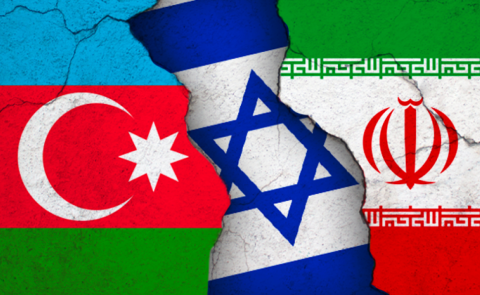
Azerbaijan Calls for 'Dialogue and Diplomatic Resolution' Between Israel and Iran
